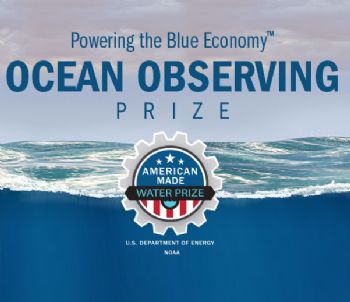
The
US Department of Energy’s Water Power Technologies Office (WPTO) and the
National Oceanic and Atmospheric Administration (NOAA) have announced that competitors for the 2022
Powering the Blue Economy: Ocean Observing Prize (this challenges innovators to integrate marine renewable energy with ocean observation platforms) will test their prototypes in the
Splash Contest next autumn on the Olympic Peninsula, Washington. This final stage of the competition is hosted by Pacific Northwest National Laboratory.
The testing will take place at two sites, one located in Sequim Bay and one in Clallam Bay. Sequim Bay was selected because of its relatively protected, calmer waters — an ‘ideal scenario’ for competitors to test their devices in the ocean for the first time and practice manoeuvring before heading to the open ocean. Clallam Bay offers the necessary wave conditions for competitors to demonstrate their devices’ wave-powered recharging capabilities.
Scheduled for September 2022, the
Splash Contest is designed to assess the endurance and performance of finalists’ wave-energy-harvesting self-charging autonomous craft in real-world sea conditions. During the multi-day test, competing teams will demonstrate all ‘functional aspects’ of their prototypes, including their ability to manoeuvre, self-charge, collect data, and communicate wirelessly.
At the end of the test, one to three awards totalling up to $1.5 million will be made. This joint prize competition between WPTO and NOAA’s Integrated Ocean Observing System Office “seeks to develop new technologies that can revolutionise our ability to collect the data needed to understand, map, and monitor the ocean — current data gaps that make it difficult to realise the full potential of the ‘Blue Economy’.”